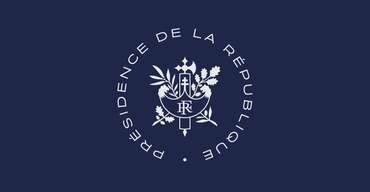Uniting to accelerate the implementation of the Paris Pact for People and the Planet (4P) agenda for an ambitious reform of the international financial architecture
About one year after the Summit for a New Global Financial Pact held in June 2023, the United Nations General Assembly high-level week provided an opportunity for world leaders to reaffirm their support to the 4P agenda for the reform of the international financial system and to state their determination to create a 4P Group of Leaders that will play a strategic role to facilitate the achievement of ambitious outcomes at critical upcoming international milestones in 2024, and culminating with the Fourth International Conference on Financing for Sustainable Development (FfD-4) in 2025 in Seville.
In this occasion, the United Kingdom, Mauritania, Togo, the Seychelles, Gambia, and Guinea Bissau joined the 4P Community. This brings to 66 the number of countries that are part of the 4P Community. Since its launch about one year ago, the 4P has become a vibrant community encompassing countries from all income levels and all continents. It represents an unparalleled opportunity for the international community to work together in a spirit of inclusivity and equality, to develop positive agendas and overcome entrenched positions. The Leaders welcomed the establishment of a 4P Secretariat (at the OECD, as an independent entity) and are committed to supporting the important role it plays to facilitate the implementation of the 4P agenda.
The 4P Community has formed many operational coalitions, which provide interested countries and stakeholders an opportunity to work together in an action-oriented fashion to boost results. These 4P Coalitions include: the Global Expert Review on Debt, Climate and Nature; the Coalition on Climate Resilient Debt Clauses; the Global Solidarity Levies Task Force; the Global Roadmap on Biodiversity Credits; the Global Green Bonds Initiative; the Coalition for Paris-Aligned Carbon Markets, and more.
Despite an increasingly challenging global context, positive results have been achieved, but greater efforts are needed to accelerate progress. In the presence of the United Nations, IMF, OECD, and WTO, leaders affirmed their resolve to work together, in line with the core 4P principles, and in synergy with other relevant initiatives such as Bridgetown.
In particular, Leaders:
- Affirmed their commitment to accelerate efforts to enhance the voice and representation given to developing countries and emerging economies in the governance structures of the international development finance institutions and other international economic and financial institutions. Leaders supported the ambition of the Brazilian G20 Presidency to push for a fairer global governance system, in particular as regards the reform of the International Financial Architecture;
- Underscored the need to provide concrete solutions to ease developing countries’ debt burdens and vulnerabilities, including through innovative instruments such as debt-for-climate or nature swaps and the adoption based on good practices of contingent clauses, including climate resilient debt clauses; solutions to face liquidity issues; voluntary rechanneling of Special Drawing Rights (SDRs) to provide additional fiscal space to countries most in need ;
- Affirmed their commitment to support an increase in concessional funding to the poorest and most vulnerable countries, including in the view of a successful IDA21 replenishment; - Highlighted the importance of working together to help MDBs and IFIs meet the recommendation of reaching a “1 to 1” ratio of private finance mobilized through public resources, and recognized the need to foster private financial flows on our shared priorities through greater alignment between real and perceived investment risks. To this end leaders recognize the need to work together to develop a roadmap and establish a constructive dialogue among regulators, credit rating agencies, private investors, governments and other players to enhance the transparency and accuracy of risk ratings and country risk assessments, including to maximise the de-risking effect and private finance mobilisation of MDBs, DFIs and bilateral providers;
- Recalled the need to increase public financing from all sources, including by exploring targeted global levies and other measures to build fairer and more effective tax systems, and providing greater support to capacity building and expertise sharing to enhance domestic resource mobilization.*
To advance these priorities, the Leaders will continue to coordinate their efforts with the 4P Community and to raise the level of ambition in all fora to contribute to achieving most successful outcomes at COPs, FfD-4 and other key international milestones.
Signatory leaders
• Emmanuel MACRON, President of the French Republic
• Macky SALL, Special Envoy
• Aziz AKHANNOUCH, Head of Government of the Kingdom of Morocco • Lolwa AL-KHATER, Minister of State for International Cooperation of the State of Qatar • Gabriel BORIC, President of Chile
• Mohamed Ould EL-GHAZOUANI, President of the Islamic Republic of Mauritania • Moussa FAKI, Chairman of the African Union
• Mette FREDERIKSEN, Prime Minister of Denmark
• Luiz Inácio LULA DA SILVA, President of the Federative Republic of Brazil • Amina MOHAMMED, Deputy Secretary-General of the United Nations
• Luís MONTENEGRO, Prime Minister of the Portuguese Republic
• Mia MOTTLEY, Prime Minister of Barbados
• Gustavo PETRO, President of the Republic of Colombia
• William RUTO, President of the Republic of Kenya
• Pedro SANCHEZ, Prime Minister of Spain
• Keir STARMER, Prime Minister of the United Kingdom of Great Britain and Northern Ireland
• Jonas Gahr STØRE, Prime Minister of the Kingdom of Norway
• To Lam, President of the Socialist Republic of Vietnam
Latest news
See all articles and topics-
17 February 2026 India – France Joint Statement.

-
20 January 2026 World Economic Forum 2026 in Davos.

-
18 January 2026 Statement by Denmark, Finland, France, Germany, the Netherlands, Norway, Sweden and the United Kingdom.

-
9 January 2026 Leader’s Declaration of France, the United Kingdom and Germany on the situation in Iran.

